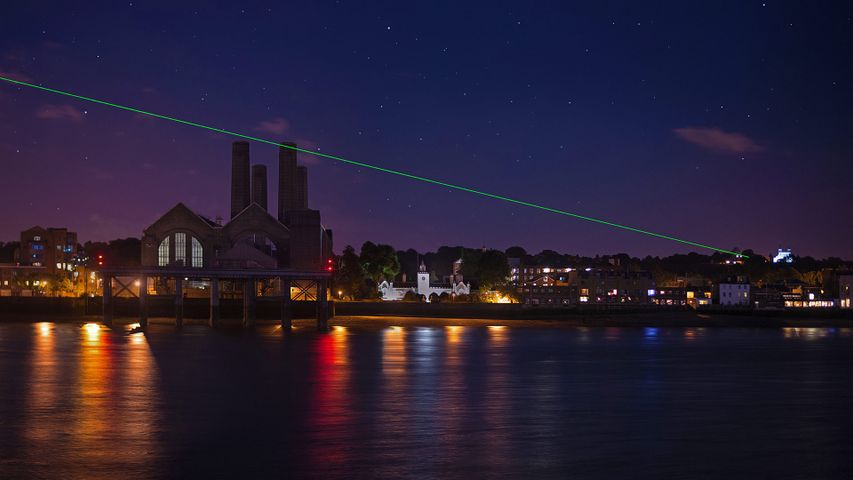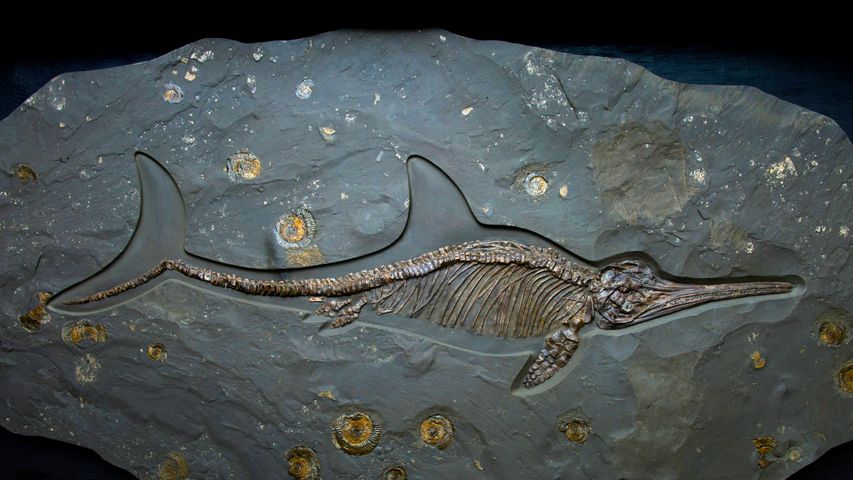'0 Degrees,' laser art by Peter Fink and Anne Bean, in Greenwich, England
© Norah Saudan/Gett
East meets west at the prime meridian. ‘Hello’ from zero degrees longitude
This laser projected from the Royal Observatory at Greenwich, in London, England, marks the prime meridian, dividing Earth’s Eastern and Western Hemispheres and helping travelers to chart their courses by establishing a universally adopted 0 degrees longitude. The meridian itself is essentially an imaginary line, arbitrarily placed. By the early 19th century, most maritime countries had established their own prime meridians to aid in navigation. But on this date in 1884, delegates from 25 nations met at a conference in Washington, DC, where they established Greenwich as the international standard for mapping and timekeeping. The decision made sense, as the Greenwich meridian was already widely used. But there was one holdout: France abstained from the vote and used its own prime meridian for several decades before eventually joining other countries in recognizing the Greenwich meridian.
Related Images
Bing Today Images




 Seljalandsfoss waterfall at sunset, Iceland
Seljalandsfoss waterfall at sunset, Iceland
 Sea turtle, Fernando de Noronha, Brazil
Sea turtle, Fernando de Noronha, Brazil
 Vila Franca Islet, São Miguel Island, Azores, Portugal
Vila Franca Islet, São Miguel Island, Azores, Portugal
 Greater flamingos, Lüderitz, Namibia
Greater flamingos, Lüderitz, Namibia
 Aerial view of Everglades National Park, Florida
Aerial view of Everglades National Park, Florida
 Arromanches-les-Bains in Normandy, France
Arromanches-les-Bains in Normandy, France
 The beach at Cala Luna, Sardinia, Italy
The beach at Cala Luna, Sardinia, Italy
 Barrier reef off the island of Grande Terre in the French overseas territory of New Caledonia
Barrier reef off the island of Grande Terre in the French overseas territory of New Caledonia

